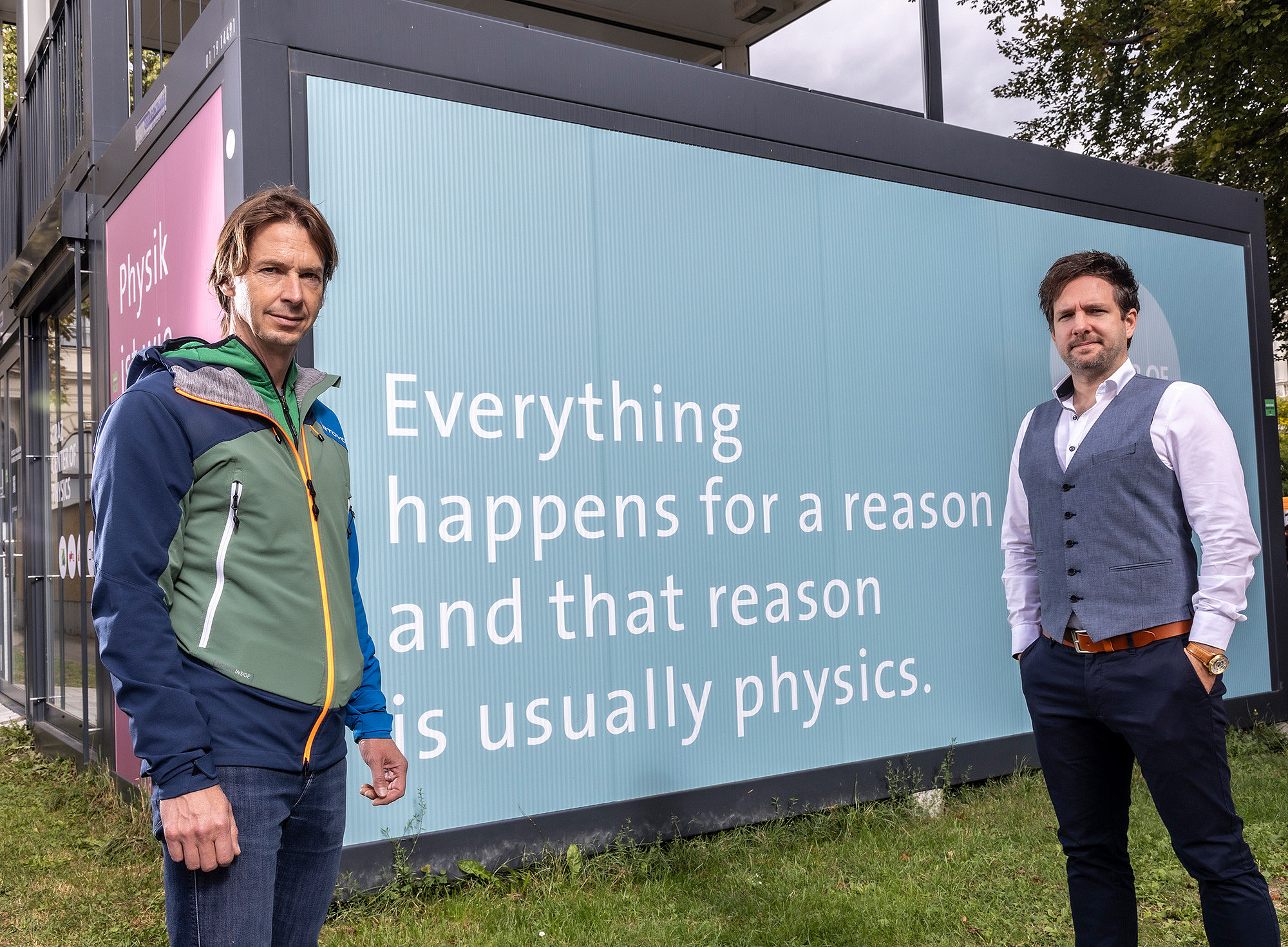The University of Graz and TU Graz set another milestone for technologies of the future: Alexander Bergmann, head of the Institute of Electrical Measurement and Sensor Systems at TU Graz, and Peter Banzer, head of the Optics of Nano and Quantum Materials – Structured Light, Sound and Matter group at the University of Graz, operate the "Christian Doppler Laboratory for Structured Matter Based Sensing", which opened today. With their teams, the two are researching basic principles and further areas of application for so-called structured materials and light fields. The facility is funded by the Federal Ministry of Labour and Economy. "Research is the basis for entrepreneurial innovation, as our CD laboratories and their corporate partners demonstrate time and again," emphasises Martin Kocher, Federal Minister of Labour and Economy.
Building Set with Nanoparticles
"In a sense, we have a Lego box at our disposal with a great many building blocks that all have certain properties. In simple terms, this allows us to assemble structures that fulfill the desired functions," Peter Banzer describes. For example, the scientists want to develop microphones that are much smaller, distort less and wear out less easily than conventional microphones. "The sound waves thereby press the 'Lego bricks' together on the sensor material. As a result, these in turn reflect the light differently than before," Alexander Bergmann illustrates.
Manipulated Microwaves
Structured materials could also be used in e-cars and e-scooters to control the transmission of torque from the motor to the wheels. The new sensors are capable of controlling the drive-off much more efficiently and thus saving energy. "We use artificially produced crystals for this purpose. These function like antennas whose signal is received by specially manipulated microwave beams," Banzer describes. Torque "detunes" the antennas, and the change in the signal is read in real time. This makes the measurement faster, more robust and requires no cables.
"The same technology can be used in robotics to allow machines to carefully attack sensitive objects," Bergmann adds. "So there are an incredible number of applications for the materials, certainly ones we have no idea about now."
In the Christian Doppler Laboratory, the researchers cooperate with internationally renowned universities, such as Stanford, Cambridge or ETH Zürich as well as with the companies ams-Osram and Infineon, which co-finance the work. The most important public funding source is the Federal Ministry of Labour and Economy. "In this specific case, the corporate partners expect a wide range of possible applications from research into the physical principles of structured matter and structured light: from sensor technology and telemetry to more efficient vehicles and machines to medicine, where sensor technology for biomolecules could be realised. Research strengthens Austria as a business location," emphasises Minister Kocher.
In Christian Doppler Laboratories, application-oriented basic research is carried out at a high level, with outstanding scientists cooperating with innovative companies. The Christian Doppler Research Association is regarded internationally as a best-practice example for the promotion of this cooperation.
